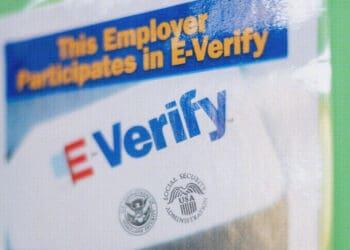Business travel is roaring back to pre-pandemic levels, and more workers than ever have access to hybrid or remote work arrangements. But all this state- and nation-hopping can run workers and their employers into challenging tax situations. But as Jennifer Stein of Global Tax Network explores, keeping communication lines open can be the key to protecting workers and companies.
Business travel is raging back, and it’s mobilizing the already travel-happy workforce even more. The Global Business Travel Association expects global business travel spending to overtake pre-pandemic levels, reaching $1.4 trillion this year. It also predicts it will accelerate to $1.8 trillion in the next three years.
This resurgence in business travel adds to a remote workforce that’s more active than ever, with 58% of employees now saying they have access to some type of remote work options.
However, international and remote work create complicated tax situations. These scenarios also invite a long list of new compliance risks. All the while, members of the workforce are largely unaware of the tax and compliance risks they’re putting on their companies by participating in remote or international work.
HR and compliance teams can prevent tax violations and significant headaches by opening the right lines of communication to remote and international employees. It’s a straightforward solution to an ever-growing problem: protecting an international workforce from the high risks of remote work — less than half of employees are even aware of tax liabilities related to remote work.
How to protect remote workers and international travelers
A significant risk for companies that employ remote workers is not always knowing their whereabouts. If remote employees are working across borders without the knowledge of their employer, they could end up owing Social Security or create withholding requirements in an unexpected area. Remote employees could also inadvertently create a corporate tax presence within a jurisdiction—and potentially leave companies with a hefty tax bill.
Beyond the tax concerns that can arise out of untethered remote work, there are also duty of care and employee experience risks. For instance, an employee may lose health benefits while working in some countries, and if employers don’t know where employees are, they can’t ensure an employee’s safety during political unrest or natural disasters.
One easy way to protect remote and international employees is to schedule more frequent check-ins. By setting up regular one-on-one meetings, employers can keep tabs on remote employees and regularly discuss the risks that come with working in different areas.
Another solution is to connect employees with country experts. People who understand the specific laws, tax rules and risks of a country can easily clear up questions international workers have about working within the location. At the same time, giving employees access to their work country experts will help them feel supported within a culture that may be unfamiliar.
How to Stay Ahead of Mobility Tax & Compliance Trends
Companies may have more employee data than they know what to do with
Read moreDetailsLowering risks for employees on international assignment
When employees are deployed on international assignments, there is usually less compliance risk than with remote employees. That’s because these assignments are generally backed by policies and corporate planning that’s tailored to their work location.
However, international assignments still carry risks, including several employee experience risks. International employees often don’t receive enough clarity about their changing tax situation or compensation in their new work destination. This can add to the employee’s mental load and lead to burnout.
Another high risk for international assignees is turnover. If they don’t adjust to local culture or develop meaningful experiences, they’ll often drop the assignment partway through — or leave the company altogether.
To reduce risk, here’s how to improve communication at each stage of an international assignment:
- Before assigning an international job, communicate clear expectations for the employee. Explain how often they’ll need to connect with advisors or colleagues in the Home office. Also, let the employee know about changes in compensation, taxes and benefits up front.
- During the international assignment, encourage the employee to develop relationships with the Host office and connect them with any country experts they can go to with questions. By keeping these lines of communication open, employees will feel more welcomed in their Host country throughout their assignment and they’ll feel more supported during their time abroad.
- As the assignment winds down, plan and communicate what the employee’s next position or project will be. That way, they can make financial plans, and they’ll feel reassured that the company values the skills they’ve developed during their international assignment.
More communication now can save compliance teams in the future
Compliance and tax leaders know how risky remote work can be. But they often aren’t passing that information on to employees in effective ways. To reduce burnout, turnover, tax violations, and reputational damage, corporate leaders need to step up their communications game. By setting up simple plans to talk more often and remain connected while working remotely, corporations can protect the entire organization from compliance setbacks in the future.




 Jennifer Stein has more than 25 years of experience in expat and foreign national tax preparation and consulting. She joined Global Tax Network in 2011 and serves as managing director. While clients' projects may look similar on paper, she understands that every employee situation is unique. She coaches clients to understand the complexities of sending employees across borders and helps them work through the many requirements of home and host reporting.
Jennifer Stein has more than 25 years of experience in expat and foreign national tax preparation and consulting. She joined Global Tax Network in 2011 and serves as managing director. While clients' projects may look similar on paper, she understands that every employee situation is unique. She coaches clients to understand the complexities of sending employees across borders and helps them work through the many requirements of home and host reporting. 






